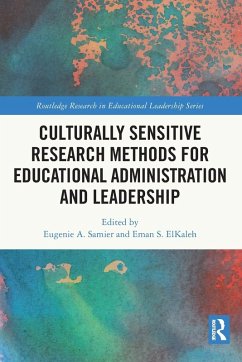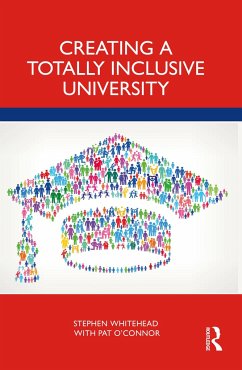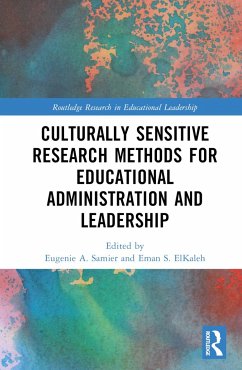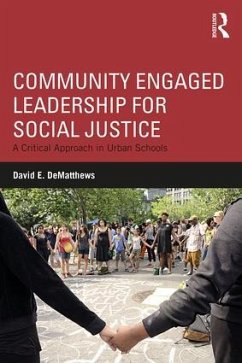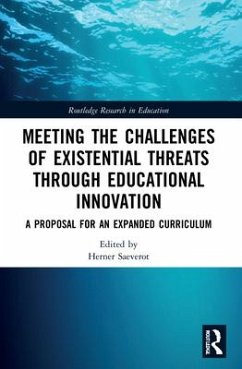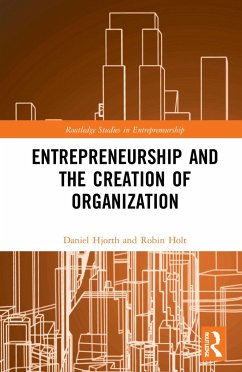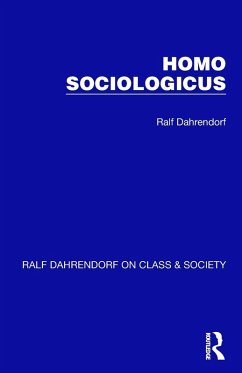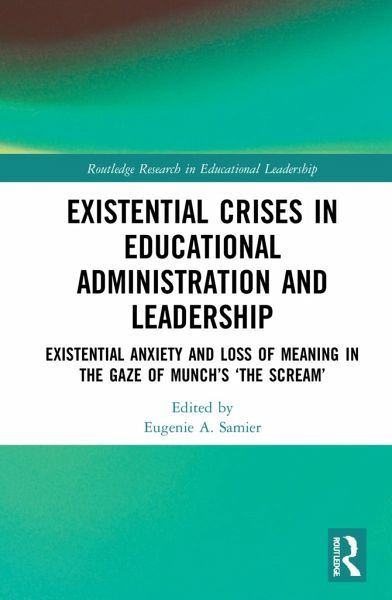
Existential Crises in Educational Administration and Leadership
Existential Anxiety and Loss of Meaning in the Gaze of Munch's 'The Scream'
Herausgegeben: Samier, Eugenie A.
Versandkostenfrei!
Versandfertig in 6-10 Tagen
154,99 €
inkl. MwSt.
Weitere Ausgaben:

PAYBACK Punkte
77 °P sammeln!
This book examines the theoretical foundations relevant to existential issues in educational leadership and management, taking inspiration from Munch's painting The Scream.The book considers internationally relevant topics such as the growth of neoliberalism, globalisation, cultural shifts, forced migration and the digitalisation of the socio-cultural sphere and uniquely positions these crises as existential threats, rather than simply political, cultural, or social. The volume explores this complex set of dimensions in existential experience and outlines the implications for research and teac...
This book examines the theoretical foundations relevant to existential issues in educational leadership and management, taking inspiration from Munch's painting The Scream.
The book considers internationally relevant topics such as the growth of neoliberalism, globalisation, cultural shifts, forced migration and the digitalisation of the socio-cultural sphere and uniquely positions these crises as existential threats, rather than simply political, cultural, or social. The volume explores this complex set of dimensions in existential experience and outlines the implications for research and teaching in educational leadership. By exemplifying the narrative and introspective nature of existential research, the book addresses major aspects of the field including the impact such threats have on organisational studies, policy, administrative structures and practices, and leadership.
This timely collection on existential issues in administration and leadership will appeal to academics, scholars, researchers, practitioners and policy-makers. It will also be of great interest for students in teacher education programmes and graduate courses in educational administration and leadership, organisation studies, and educational ethics for broad international use.
The book considers internationally relevant topics such as the growth of neoliberalism, globalisation, cultural shifts, forced migration and the digitalisation of the socio-cultural sphere and uniquely positions these crises as existential threats, rather than simply political, cultural, or social. The volume explores this complex set of dimensions in existential experience and outlines the implications for research and teaching in educational leadership. By exemplifying the narrative and introspective nature of existential research, the book addresses major aspects of the field including the impact such threats have on organisational studies, policy, administrative structures and practices, and leadership.
This timely collection on existential issues in administration and leadership will appeal to academics, scholars, researchers, practitioners and policy-makers. It will also be of great interest for students in teacher education programmes and graduate courses in educational administration and leadership, organisation studies, and educational ethics for broad international use.




